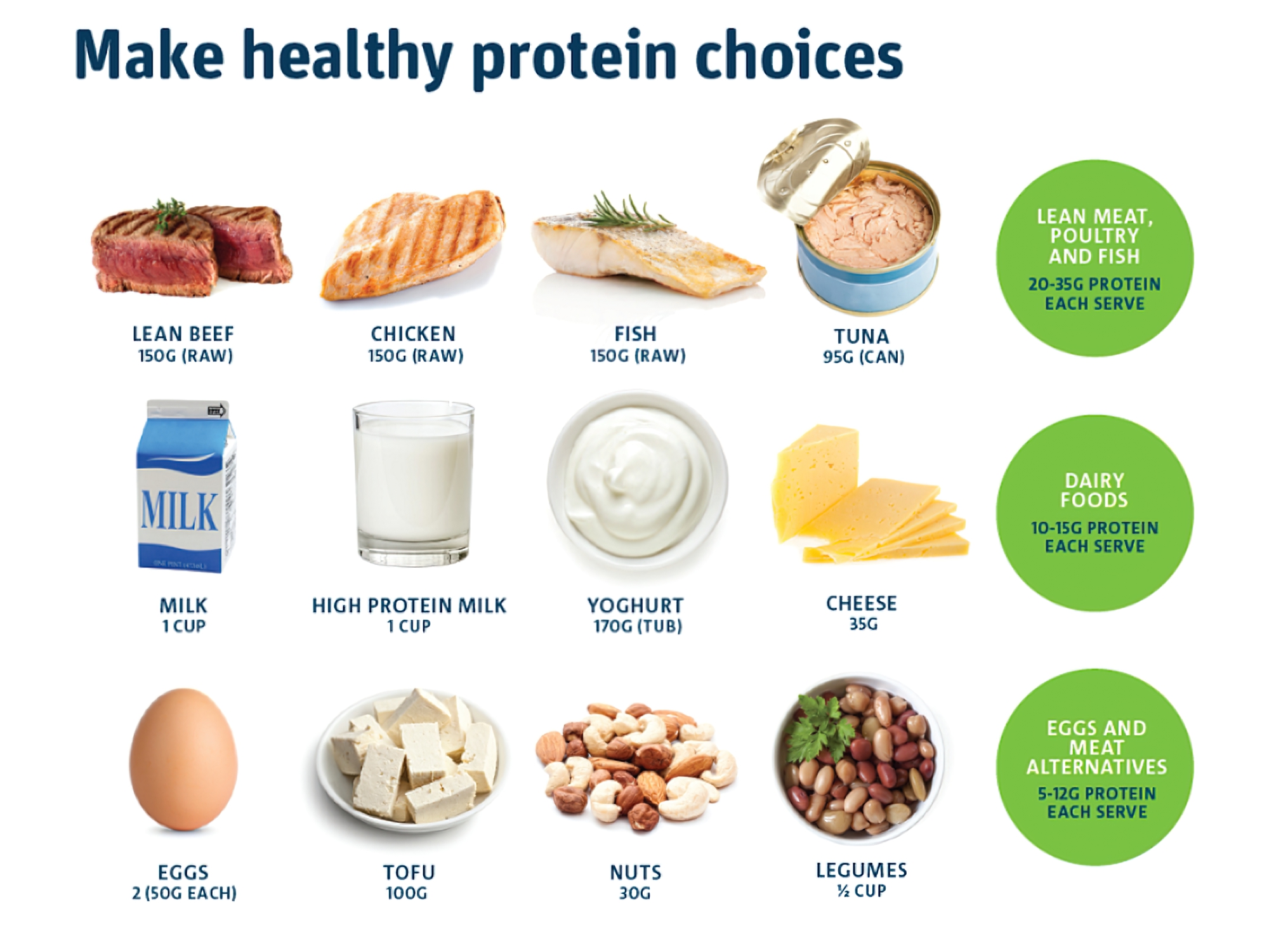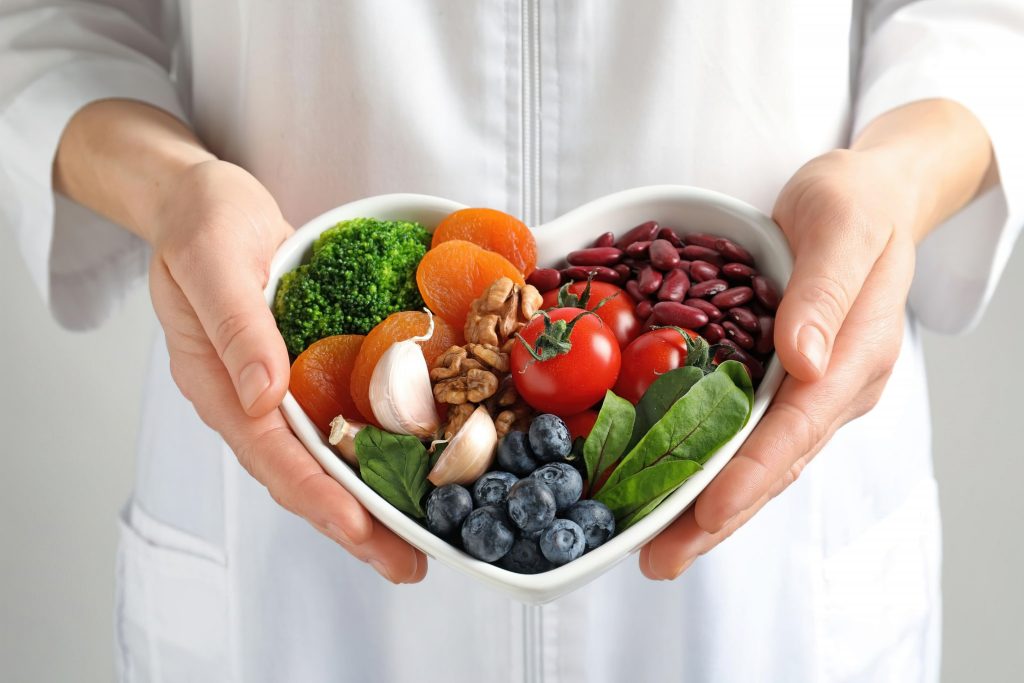Top Foods for Heart Health and Fitness
Cardiovascular health is paramount to overall wellness and can directly influence your fitness performance. Incorporating specific nutrient-rich foods into your diet can support heart health, boost your stamina, and promote recovery. Let’s dive into the best foods for cardiovascular health and fitness.
Powerful Proteins and Healthy Fats
Lean proteins, such as fish and chicken, provide the body with essential amino acids necessary for muscle repair and growth. Fatty fish like salmon, mackerel, and sardines are high in omega-3 fatty acids. These fats are linked to reducing inflammation and lowering the risk of heart disease.
Heart-Healthy Salmon Salad Recipe
- Ingredients: 2 salmon fillets, 4 cups of mixed greens, 1 avocado, cherry tomatoes, 1/4 cup of extra virgin olive oil, lemon juice, salt, and pepper.
- Preparation: Grill or bake the salmon at 375°F (190°C) for 20 minutes. Mix the greens, diced avocado, and cherry tomatoes in a bowl. Top with the cooked salmon. Drizzle with olive oil and lemon juice, season with salt and pepper.
Fiber-Filled Fruits and Vegetables
Fruits and vegetables are high in fiber, which aids digestion and helps control cholesterol levels. Berries are packed with antioxidants and lower heart disease risk.
Berry Blast Smoothie Recipe
- Ingredients: 1 cup of mixed berries (strawberries, blueberries, raspberries), 1 banana, 1/2 cup of Greek yogurt, 1/2 cup of almond milk, a handful of spinach, 1 tablespoon of chia seeds.
- Preparation: Blend all ingredients until smooth. Enjoy immediately for the best nutrient absorption.
Whole Grains and Legumes
Whole grains like oats, brown rice, and quinoa provide B vitamins, fiber, and are linked to lower heart disease risk. Legumes like lentils, chickpeas, and black beans are protein-rich and high in fiber.
Protein-Packed Quinoa Bowl Recipe
- Ingredients: 1 cup of cooked quinoa, 1/2 cup of black beans, cherry tomatoes, cucumbers, bell peppers, 1/4 cup of olive oil, lime juice, salt, and pepper.
- Preparation: Mix all ingredients in a bowl, drizzle with olive oil and lime juice, season with salt and pepper.
Dark Chocolate and Red Wine
In moderation, dark chocolate and red wine can be part of a heart-healthy diet. Dark chocolate contains flavonoids that may reduce heart disease risk. Red wine, especially varieties like pinot noir and cabernet sauvignon, contain resveratrol, which has been linked to heart health.
Heart-Smart Spices and Nuts
Don’t underestimate the power of spices and nuts in promoting heart health. Turmeric contains curcumin, known for its anti-inflammatory and antioxidant properties. Garlic has been recognized for its potential to lower blood pressure and slow down atherosclerosis. Almonds, walnuts, and other nuts are full of heart-healthy fats, protein, and fiber.
Turmeric Almond Smoothie Recipe
- Ingredients: 1 banana, 1 cup of almond milk, a handful of spinach, 2 tablespoons of almond butter, 1/2 teaspoon of turmeric, a pinch of black pepper.
- Preparation: Blend all the ingredients together until smooth. The black pepper is added to enhance the absorption of curcumin in turmeric.
Hydrating with Heart-Healthy Beverages
Drinks like green tea and beetroot juice also provide cardiovascular benefits. Green tea has a range of antioxidants, including catechins, which can inhibit the oxidation of LDL (bad) cholesterol and improve arterial function. Beetroot juice is a rich source of dietary nitrates that can help reduce blood pressure and improve athletic performance.
Green Tea and Honey Refresher Recipe
- Ingredients: 1 green tea bag, 1 cup of hot water, 1 teaspoon of honey, fresh mint, and lemon slices.
- Preparation: Brew the tea for 3 minutes, then remove the tea bag. Stir in the honey and top with fresh mint and lemon slices. Enjoy hot or chill for a refreshing cold drink.
Balanced Diet for Optimal Fitness
A balanced diet incorporating these heart-healthy foods can improve fitness performance by enhancing cardiovascular health, boosting energy levels, and speeding up recovery times. Remember, the timing and portion size of meals and snacks also play a role in maintaining optimal fitness levels.
Tailoring your fitness diet to include these foods will not only benefit your heart but also contribute to overall health and well-being. As with any dietary changes, it’s essential to consult with a healthcare provider or a registered dietitian to ensure the changes suit your individual needs and fitness goals. Remember, a healthy diet goes hand in hand with regular exercise, adequate hydration, and sufficient sleep.
So, are you ready to make your meals more heart-friendly and take a step forward in your fitness journey?

